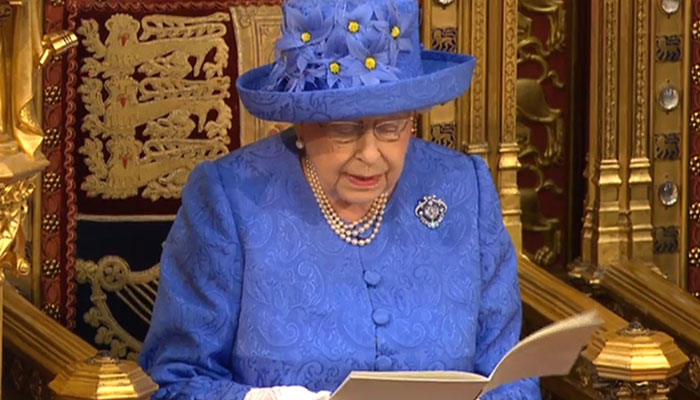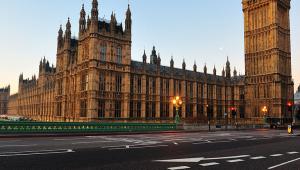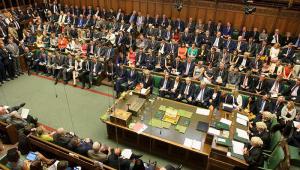
Photo: PA
The speech marks the state opening of Parliament and the new parliamentary term following the 8 June general election.
It outlined plans for 27 bills and draft bills, of which eight are Brexit focused.
In her address, the Queen stated: “A bill will be introduced to repeal the European Communities Act and provide certainty for individuals and businesses.
“This will be complemented by legislation to ensure that the United Kingdom makes a success of Brexit, establishing new national policies on immigration, international sanctions, nuclear safeguards, agriculture, and fisheries.”
There will be a Customs Bill to ensure the country has a standalone UK customs regime when it leaves the union.
Meanwhile, a Trade Bill will “cement the United Kingdom’s status as a leading trading nation, driving positive global change through trade, whilst ensuring UK businesses are protected from unfair trading practices”.
Freedom of movement will be suspended through an Immigration Bill, which will allow the government to control the number of people coming here from Europe while “still allowing us to attract the brightest and the best”.
However, there was disappointment for anyone hoping for movement on public sector pay as any mention of the issue was absent from the speech.
Proposals on social care were vague. The Queen said the government would “work to improve social care and will bring forward proposals for consultation”.
Headline Conservative manifesto pledges on grammar schools extensions, a free vote on fox hunting and means-testing pensioner benefits were missing from the speech, highlighting the government’s weakness following its disappointing performance at the election. A confidence and supply deal with Northern Ireland’s Democratic Unionist Party has yet to be agreed after almost two weeks of talks.
Other bills focus on domestic violence and abuse, banning fees for tenants in the private rented sector and flexible service in the armed forces. A bill to authorise the second leg of the High Speed 2 rail link between Birmingham and Crewe was also included.
CIPFA chief executive Rob Whiteman said “several pressing issues that were conspicuous in their absence”, highlighting health and social care and devolution.
He said: “Without urgent action, both health and social care budgets will be stretched to breaking point. More realistic medium and long term financial planning, and investment in prevention, is needed to stabilise the financial position of the NHS. As the top financial challenge for local government and given that it was such high priority by the Government but a few weeks ago, silence on the issue of social care today is extremely concerning.”
Whiteman added: “The election of English city mayors is a significant step towards that devolution, but leaving out all mention of local government from the Queen’s speech raises concerns that certain initiatives, such as the local retention of business rates agenda, have already been kicked into the long grass.”
CIPFA's concerns were echoed by Local Government Information Unit chief executive Jonathan Carr-West, who said the speech left local government facing “uncertainty”.
“For local government this is a Queen’s speech that hovers around the edges rather than directly confronting the big questions," he said.
“There are no firm proposals on social care funding reform and no mention of devolution in England. There is no further detail on the road map towards 100% business rate retention. All of these issues are urgent and growing more urgent by the month.”
Public and Commercial Services union general secretary Mark Serwotka said: “In refusing to end the public sector pay cap, the Tories are showing contempt for public servants who have suffered seven years of wage cuts.
Outgoing Liberal Democrat leader Tim Farron said: “This slimmed down Queen’s Speech shows a government on the edge.”
He criticised the speech for failing to address the public’s concerns about “schools and hospitals in crisis”.




















